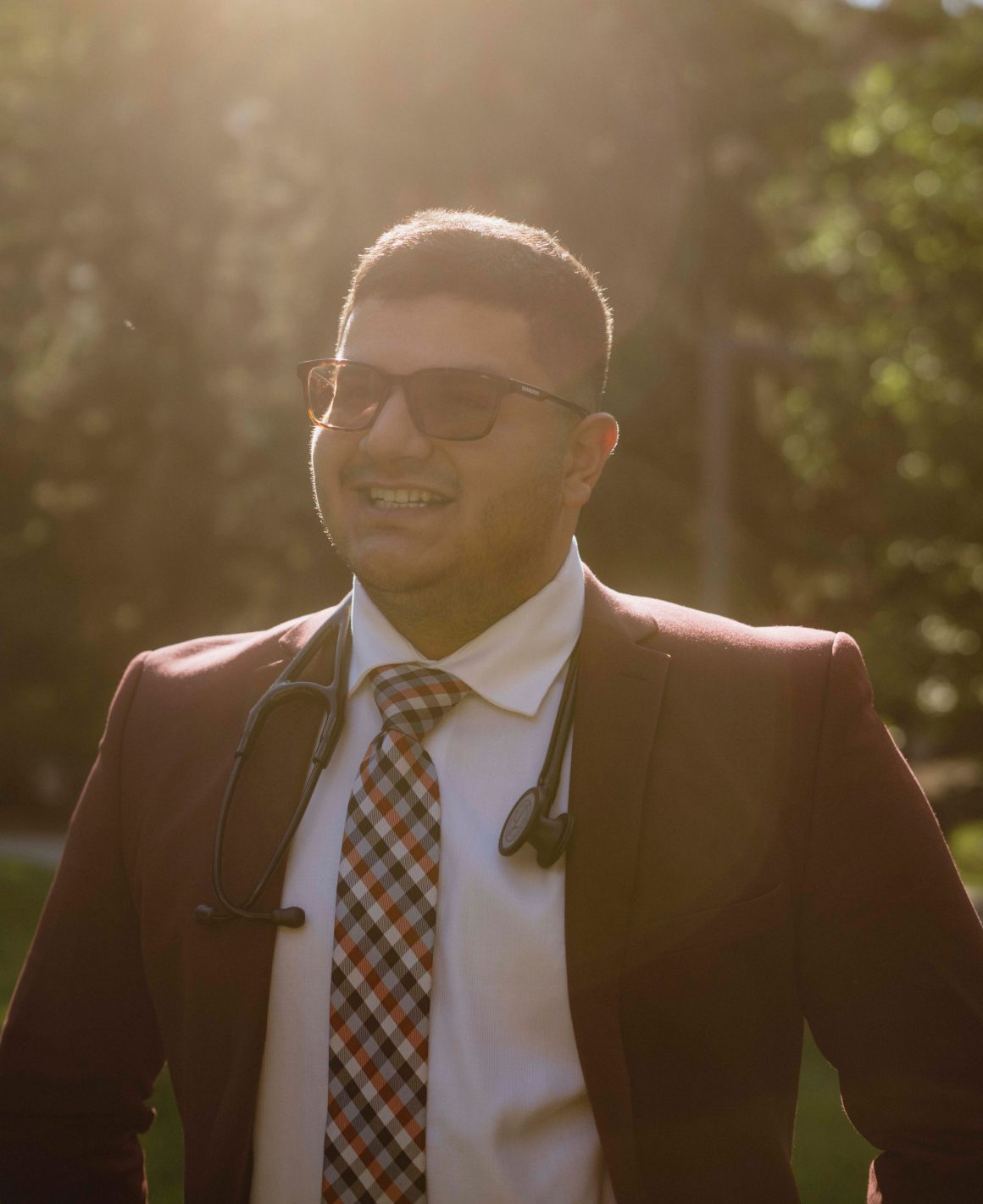
Life Long Mentors offer peer mental health support for youth
By Cristina Paolozzi, November 16 2021—
As students are preparing to wrap up their first semester back from almost two years of completely online learning, more and more young people are accessing mental health resources.
While there are many services across the city students can access, a new initiative called Life Long Mentors provides an alternative approach to mental health aid.
Created by a first-year medical student from the University of Calgary, Hassan Nawab, Life Long Mentors offers peer support services that connect youth with a trained volunteer who has lived experience with mental health. This service is offered free of charge, and there is no need for prior referral.
Nawab spoke with the Gauntlet about how this service hopes to change the shifting landscape of mental health resources and how it’s specifically targeted for youth to access in times of need.
A long-time mental health advocate, Nawab obtained an honours psychology degree from the University of Alberta and was involved with an organization called Active Minds.
“We were basically a grassroots movement that I founded,” said Nawab. “It was a student movement but I wanted to see ourselves more as a social movement dedicated to changing the conversation surrounding mental health.”
Nawab said that a huge inspiration for Life Long Mentors came from a goal to move past advocacy, putting the skills he learned in his psychology undergrad together with his current studies in medicine.
Nawab also spoke about the stigma that peer support specifically has as a mental health resource, and how he hopes to overcome that and provide quality services for youth. Nawab wanted to create something that was both accessible, but focused on compassion and found that using a peer-support system with people who have had lived experience with mental health challenges was the best approach.
“Peer support is pairing someone who is facing a mental health challenge with someone who has lived experience with mental health as a way to offer help,” he said. “Peer support philosophy involves peer education, peer listening and also peer mentorship — so it’s basically meeting up with someone who has been in your shoes. I found that to be the most compassionate way of addressing mental health challenges faced by youth.”
Life Long Mentors have a three-step procedure for those who access the service. The first step is an initial consultation to pair that person with the best mentee. The second step is a volunteer and mentee meet-and-greet and the third step is the individualized peer-support sessions, which are primarily taking place over Zoom.
Nawab said that Life Long Mentors are trying to provide options outside of the traditional medical model so that young people can find more accessible and relatable support.
“The big idea here is that these individuals have lived experience, but they have recovered and demonstrated resiliency throughout their experiences with mental health,” said Nawab. “They’re really trying to provide that glimpse into their life and share it as a way of hope and encouragement to people that are undergoing any challenges with their mental health.”
Nawab stressed that while the medical model is necessary and still very important as a pathway for recovery, Life Long Mentors offer a more holistic approach to youth mental health.
“I’m not saying that people shouldn’t seek support from a doctor or psychologist — that’s also very, very important,” he said. “But when we’re looking at mental health and ways to overcome any challenges that people are facing, it’s very important to have that holistic model approach, and that’s something that Life Long Mentors really strive to achieve.”
As a result of the pandemic, many young people have continuously struggled with mental health issues, and Nawab said that he has seen the use of Life Long Mentors help with increased feelings of loneliness, burnout and a general lack of social connection.
“Unfortunately, with the whole COVID situation, we have seen an increase in individuals accessing the program,” said Nawab. “Loneliness is a big one because, with COVID, we were restrained with the lockdowns, we can’t go outside, some people are more extroverted than other people or even the paranoia that comes with going outside — normal, daily events were really tested with COVID. But Life Long Mentors adapted through that virtual platform and it’s been really good in terms of increasing accessibility.”
Some of the successes Nawab has already experienced with Life Long Mentors includes the feedback from people who have accessed the service being overwhelmingly positive.
“That true compassion between the peer support, mentor and mentee is something that we really want to cultivate,” he said. “So in that service, we can see the benefits of peer support which is all about meeting people where they’re at and having that lived experience, where a psychologist or psychiatrist or someone in the medical model may not have to provide that comprehensive care.”
However, the peer support model is also the source of some challenges Life Long Mentors have faced.
“Is this a legitimate program? It’s something that we get asked a lot,” said Nawab. “So just shining the light on peer support and talking about the research that’s being done and the fact that this sort of program has been also implemented in hospital care as a part of a holistic model is very important to overcome.”
Nawab has two main goals for the future of Life Long Mentors — to conduct research on peer support solutions regarding mental health, and to provide this care not only within the province but across the country.
“Peer support has a benefit, and we should be creating more of these programs for youth to access because it does have a positive impact for youth mental health.”
Life Long Mentors are looking for volunteers to get involved and help with their peer-support program. For more information and to see the requirements to apply, check out their website.
